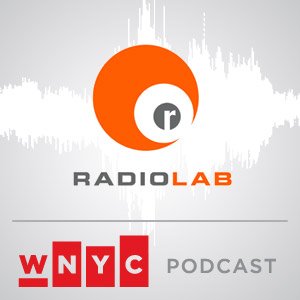 Charlottesville, Virginia, where Streetlight operates from, is full of Ph.D candidates, post-docs and masters students, thanks to Mr. Jefferson’s University. Amid all the academic types, a person without some kind of post-graduate education can sometimes find herself feeling a touch inadequate. There. I said it.
Charlottesville, Virginia, where Streetlight operates from, is full of Ph.D candidates, post-docs and masters students, thanks to Mr. Jefferson’s University. Amid all the academic types, a person without some kind of post-graduate education can sometimes find herself feeling a touch inadequate. There. I said it.
Luckily, for those of us without the focus, freedom, or finances, formal knowledge is as accessible these days as frozen yogurt. Personally, I’ve found my university in the pages of The New Yorker and in the sweet sounds of Radiolab, an NPR podcast. Podcasts are a newer medium for me, listening to “radio” over my phone, on the train, at the beach, in the preschool parking lot. But Radiolab is not your mama’s radio, and I’ll tell you why, in three alliterative words: science, story, sound.
Each Radiolab episode (hosted by the dynamic duo of Jad Abumrad and Robert Krulwich) explores some theme with a scientific spin, all in story-form. Topics like darkness, limits, placebo, even oops open up realms of information about the world that will make your head spin. So you’re learning something, great. But it gets better, because underneath each episode, weaving through each fascinating and unique narrative, is a hum and swell—of music, sound effects, sound bites, echoes and carefully placed silences. And anyone who ever listened to radio programs like The Lone Ranger can attest to how auditory elements enhance a story—building tension, reinforcing emotional undercurrents, creating opportunities for things to sink in. For me, this makes each episode an even richer learning experience.
As writers, we don’t usually have the privilege of playing soundtracks alongside our work. But after listening to many Radiolab shows, I’m convinced that sound amplifies story. How do you incorporate the auditory into your writing? What would you include alongside your writing if a reader could hear it out loud? Take a listen to this episode about the line between language and music. I promise you won’t be bored, and, at the very least, you’ll learn something cool to share at your next dinner party, or even to incorporate into your next writing session.
Follow us!Share this post with your friends.
